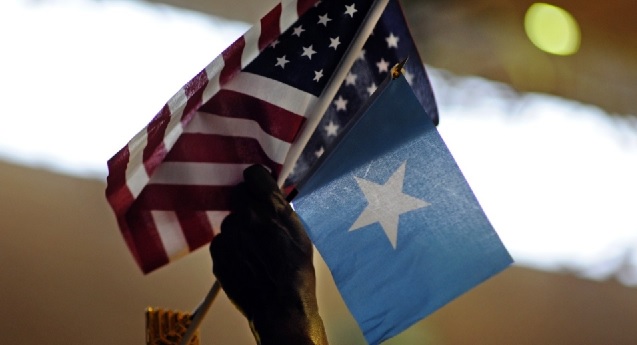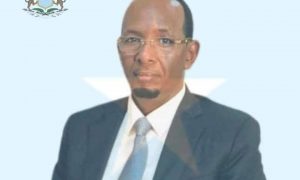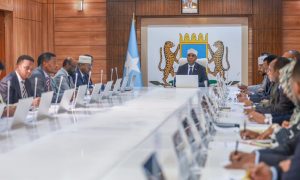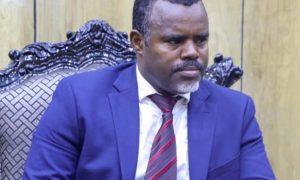
Hint: Stop stigmatizing these marginalized residents as terrorists.
Star Tribune | By Multiple authors | April 27, 2016 –
Editor’s note: The following is a statement from the West Bank Community Coalition board of directors and staff members.
Some 26,400 Somali-Americans were living in poverty in Minnesota in 2014, according to the U.S. Census Bureau’s American Community Survey and the state demographer. Another 11,700 were living in near-poverty. As Gov. Mark Dayton noted in his State of the State address, Somali-American family incomes are 71 percent lower than average white family incomes in Minnesota.
In the face of such well-established disparities for historically marginalized populations in Minnesota, policymakers in our state continue to leave the Somali community behind.
The Cedar-Riverside neighborhood in Minneapolis — one of the most densely populated areas in the state, with approximately 1,800 apartment units on two city blocks that house a population whose median household income is $12,794 — is home to some of the most egregious health, education and income inequities in Minnesota. But we are not without potential. Over 60 percent of our community members are under age 35, an increasingly important age group as Minnesota’s workforce ages. We are engaged and ambitious. We do not want to merely survive in the position we are currently in; we want to thrive so our neighborhood can see better days.
Unfortunately, our ambition is no match for the systemic barriers to success that we face. Even more unfortunate is that these barriers result in part from ineffective public policy of the past that left our neighborhood without access to many social services other neighborhoods have, such as a public library or a school.
And our barriers keep coming, through programs like the Department of Justice’s Countering Violent Extremism (CVE) program (known locally as Building Community Resilience), which focuses only on the Somali community, stigmatizing us as a result of the false premise that a person’s Islamic faith determines their propensity toward violence.
We live these negative effects when 13-year-olds shout down girls from our community as terrorists during club basketball games; when moviegoers call police on boys from our community because they were East Africans with backpacks; when women assault women from our community for not speaking English in a restaurant, and in so many other chilling daily instances.
When you combine the isolation, stigma and distrust that the CVE program creates with our community’s existing lack of opportunity, you create a recipe that makes our young people less resistant to radicalization.
Our community needs funding for social services. Our young people become vulnerable to radicalization only if they continue to face unrelenting systemic and social racism that results in them being underserved. We deserve, however, to receive those social services the same way every other Minnesota community receives them — through the state departments of Health, Human Services, Education, Employment and Economic Development, and so on — not through law enforcement agencies like the Department of Public Safety.
History shows us that when you attempt to address a social problem through a law enforcement lens, you exacerbate the social problem, as we saw with the failed war on drugs.
As the neighborhood organization for Cedar-Riverside, the West Bank Community Coalition (WBBC) is dedicated to preserving the neighborhood’s strengths, identifying and helping to address the neighborhood’s changing needs, and bringing positive improvements to all. We pride ourselves on robust community-engagement efforts. Because when you include a community in building the plans intended for them, policy can be part of the solution rather than part of the problem.
We are calling on you to listen to us. Here are our recommendations for this legislative session:
• Do not support an appropriation to “Somali Youth and Community Resilience” (HF 3330), as it perpetuates a stigma against the Somali community by running our social service programming through a law enforcement agency (the Department of Public Safety).
• Support a capital investment appropriation for organizations that have rejected money tied to the CVE or other law enforcement efforts, including 1) the Cedar Riverside Opportunity Center, which will give hope to our community by providing us a space to enroll in job-training programs, improve our job-seeking skills and even interview for jobs, and 2) the Brian Coyle Community Center, providing a productive public space for our young people to connect with nonprofit organizations, local government, institutions of higher education and other neighborhood services.
The best thing you can do to help the Somali community in the Cedar-Riverside neighborhood, and in Minnesota as a whole, is to commit to an inclusive process by rejecting the institutionalization of Islamophobia and accepting the above recommendations from our community.
.
.
The West Bank Community Coalition is at westbankcc.org.
_______________________________
_____________________________________________________________________________________
Xafiiska Wararka Qaranimo Online | Mogadishu, Somalia
_____________________________________________________________________________________Advertisement
_____________________________________________________________________________________






